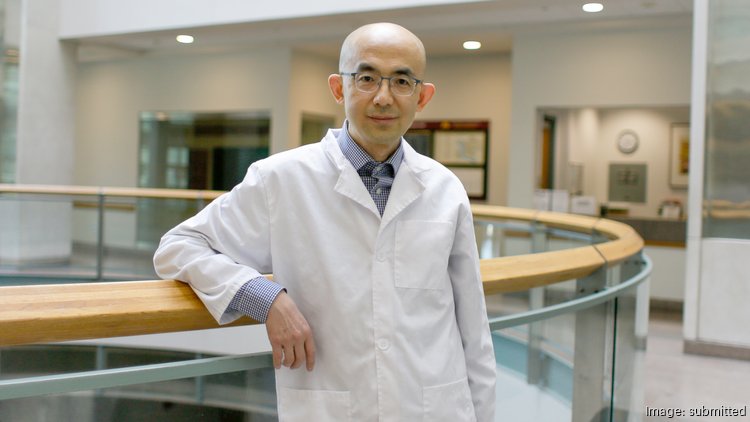
By Kali Kotoski, Midwest AViDD Communications Director
In January 2020, as the SARS-CoV-2 genome sequence made its public debut, Dr. Fang Li of the University of Minnesota was quick to dive deep into the research on this swiftly-spreading virus, soon to ignite the COVID-19 pandemic.
Having done pioneering work on the 2002-2003 SARS epidemic, Dr. Li was no stranger to coronaviruses. Drawing on his expertise on SARS, he and his team forecasted vital molecular behaviors of SARS-CoV-2, such as its receptor usage and the animal species it can or cannot infect. These predictions of the virus’s behavior were quickly published, and the paper rapidly became one of the most heavily cited publications.
“Looking back, we made accurate predictions of the receptor usage and host range of SARS-CoV-2 in the early days of the pandemic,” Li remarked. “Our decade-long structural studies on SARS spared the scientific community invaluable time and effort in battling the pandemic.”
In the subsequent months, Li's team unveiled three critical molecular distinctions between SARS-CoV-2 and SARS. These included SARS-CoV-2’s higher affinity for its human receptor, its activation by a human protease called furin, and an immune escape strategy by hiding its receptor-binding protein. These breakthrough findings (#1 and #2) were detailed in two heavily-cited articles (#1 and #2).
“While there are many similarities between SARS-CoV-2 and SARS, our research highlighted the unique characteristics of SARS-CoV-2," said Li. "These distinctions provide insights into why SARS-CoV-2 led to a global pandemic, unlike SARS."
Their initial forecasts, coupled with these novel discoveries, became the molecular bedrock steering the worldwide fight against COVID-19. This groundwork significantly expedited the creation of vaccines, treatments, and pandemic monitoring tools.
Dr. Li is set to be honored with the American Society of Microbiology’s Elizabeth O. King Lecturer Award at the society’s annual conference in Atlanta in June 2024. This award celebrates those who've notably advanced public health and pathogen discovery.
Li expressed his gratitude, saying, “My team and I are deeply honored by this acknowledgment. We remain committed to unraveling the complexities of viruses and devising strategies to counter them.”
The American Society for Microbiology (ASM) stands as one of the largest professional organizations dedicated to life sciences, with a community of over 30,000 scientists and health professionals. Every year, one Elizabeth O. King Lecturer Award winner is selected by a committee based on nominations from peers.
“The ASM Awards and Prize Program applauds outstanding microbiologists who have contributed significantly to advancing the microbial sciences,” said ASM CEO Stefano Bertuzzi in a news release.
Li is the professor and Tulloch Endowed Chair in the Department of Pharmacology at the University of Minnesota. He also serves as the director of the Minnesota Center for Coronavirus Research and co-director of the Midwest Antiviral Drug Discovery (AViDD) Center, a Center that focuses on quickly developing the next generation of antiviral drugs for pandemic-level viruses. Headquartered at the University of Minnesota and including 18 other institutions nationwide, the Midwest AViDD Center is part of a network of nine national centers established by the National Institute of Allergy and Infectious Diseases (NIAID).